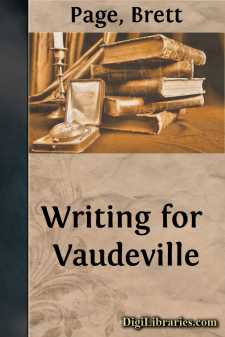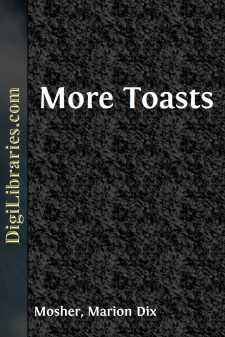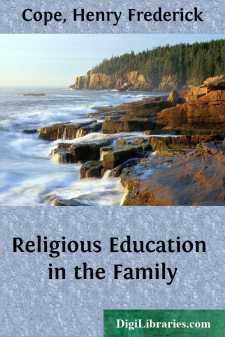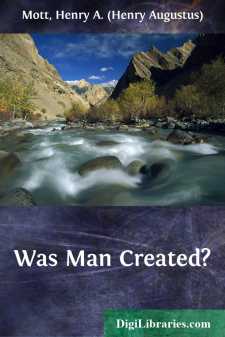Categories
- Antiques & Collectibles 13
- Architecture 36
- Art 48
- Bibles 22
- Biography & Autobiography 813
- Body, Mind & Spirit 142
- Business & Economics 28
- Children's Books 16
- Children's Fiction 13
- Computers 4
- Cooking 94
- Crafts & Hobbies 4
- Drama 346
- Education 46
- Family & Relationships 57
- Fiction 11829
- Games 19
- Gardening 17
- Health & Fitness 34
- History 1377
- House & Home 1
- Humor 147
- Juvenile Fiction 1873
- Juvenile Nonfiction 202
- Language Arts & Disciplines 88
- Law 16
- Literary Collections 686
- Literary Criticism 179
- Mathematics 13
- Medical 41
- Music 40
- Nature 179
- Non-Classifiable 1768
- Performing Arts 7
- Periodicals 1453
- Philosophy 64
- Photography 2
- Poetry 896
- Political Science 203
- Psychology 42
- Reference 154
- Religion 513
- Science 126
- Self-Help 84
- Social Science 81
- Sports & Recreation 34
- Study Aids 3
- Technology & Engineering 59
- Transportation 23
- Travel 463
- True Crime 29
Sort by:
by:
Brett Page
CHAPTER I THE WHY OF THE VAUDEVILLE ACT 1. The Rise of Vaudeville A French workman who lived in the Valley of the Vire in the fourteenth or fifteenth century, is said to be vaudeville's grandparent. Of course, the child of his brain bears not even a remote resemblance to its descendant of to-day, yet the line is unbroken and the relationship clearer than many of the family trees of the royal...
more...
The "Canuck" That Saved Flour Gold "A fellow must have something against himself—he certainly must—to live down here year in and year out and never do a lick of work on a trail like this, that he's usin' constant. Gettin' off half a dozen times to lift the front end of your horse around a point, and then the back end—there's nothin' to it!" Grumbling to...
more...
by:
Alexander Pope
INTRODUCTION Perhaps no other great poet in English Literature has been so differently judged at different times as Alexander Pope. Accepted almost on his first appearance as one of the leading poets of the day, he rapidly became recognized as the foremost man of letters of his age. He held this position throughout his life, and for over half a century after his death his works were considered not only...
more...
INTRODUCTION What can be more fitting than that a compiled book should have a compiled introduction? Why should one with great pains and poor prospects of success attempt to do what has already been well done? Knowing that all readers of this book have a sense of humor and that they will approve our decision we begin with a quotation from an article by Mr. E. Lyttelton. The Divine Gift of Humor The...
more...
In the social organization of the Wyandots four groups are recognized—the family, the gens, the phratry, and the tribe. THE FAMILY. The family, as the term is here used, is nearly synonymous with the household. It is composed of the persons who occupy one lodge, or, in their permanent wigwams, one section of a communal dwelling. These permanent dwellings are constructed in an oblong form, of poles...
more...
CHAPTER I AN INTERPRETATION OF THE FAMILY § 1. TAKING THE HOME IN RELIGIOUS TERMS The ills of the modern home are symptomatic. Divorce, childless families, irreverent children, and the decadence of the old type of separate home life are signs of forgotten ideals, lost motives, and insufficient purposes. Where the home is only an opportunity for self-indulgence, it easily becomes a cheap...
more...
by:
Alice B. Emerson
CHAPTER I A LIVELY TIME "I don't think we'd better go home that way, Helen." "Why not? Mr. Bassett won't care—and it's the nearest way to the road." "But he's got a sign up—and his cattle run in this pasture," said Ruth Fielding, who, with her chum, Helen Cameron, and Helen's twin brother, Tom, had been skating on the Lumano River, where the ice...
more...
BILLY'S REVERY 1 No use talking, it's perplexing, Everything don't look the same; Never had these curious feelin's Till those MacIntyres came. Quit my plowing long 'fore dinner, Didn't hitch my team again; Spent the day with these new neighbors, Getting 'quainted with the men. Talk about the prairie roses! Purtiest flow'rs in all the world, But they look like...
more...
WYGATE SCHOOL "Emily Underwood, 19; Stanley Smith, 20; Cyril Bruce, 21; Nellie Underwood, 22; Elizabeth Bruce, 23—bottom of the class!" Mr. Sharman took off his eyeglasses, rubbed them, and put them on again. Then he looked very hard at the little girl at the end of the furthest form, who was hanging her head and industriously biting a slate pencil. "Stand up, Elizabeth Bruce. Put down...
more...
PREFACE. This work was originally written to be delivered as a lecture; but as its pages continued to multiply, it was suggested to the author by numerous friends that it ought to be published in book-form; this, at last, the author concluded to do. This work, therefore, does not claim to be an exhaustive discussion of the various departments of which it treats; but rather it has been the aim of the...
more...











